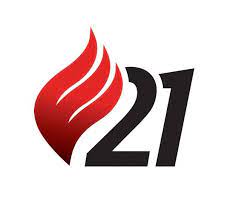May 14–15, 2018
Chosen through carefully surveying world leaders of the Spirit-Empowered Movement (hereafter “SEM”), this theme invites scholars in this movement (and others wishing to help) to help SEM members proclaim the distinctiveness of Jesus Christ as the only Way, Truth, and Life. As this consultation takes place in Africa and is jointly organized by the Empowered21 Global Office and the African host, the Consultation can offer to the world the gift of experiences, reflections, and lessons gained by African SEM. They will be joined by outsiders who can bring similar reflections but from different contexts.
Theme Description
The following description of the theme aims to inform E21 leaders of how the Consultation intends to approach the topic and to suggest to scholars how broadly the Consultation views the theme, so they may offer scholarship that aligns with it. Through this Consultation, E21 as a movement wishes to affirm Jesus Christ as the only Way, Truth, and Life. The Consultation also intends to be a space for mutual learning. Case studies are actively encouraged to bring lived-out experiences in specific socio-cultural contexts for deeper reflection. The studies would also identify challenges that are at work in each context. The result of the Consultation all participants seek is a deeper understanding of such issues to promote effective Spirit-empowered ministry.
Each study may include part or all of the following elements:
Affirmation of the Uniqueness of Christ as the Savior:
The biblical affirmation of Christ as the only Savior is the foundation for Christian life, discipleship, and witness, and this conviction is shared broadly throughout Christian confessional families. This shared foundation, however, is experienced by Spirit-empowered believers or churches in distinct ways. Two elements may be worthy of investigation. One is the role of religious expectations in the shaping and strengthening of one’s belief. For example, in some parts of the world, healings, dreams, visions, and casting out demons are expected regularly, regardless of one’s religion. In this context, a Christian believer would be more open to the work of the Holy Spirit than a sociocultural context where religions, including Christianity, do not carry such expectations. The second is one’s religious experience. Healing often comes as the most common and life-changing experience. The question is how these and other unique features of Spirit-empowered life have contributed to the theological shaping of the uniqueness of Christ as the only Savior.
Challenges Arising from Social Contexts, both Global and Local:
The second part identifies, from the contemporary context, challenges to the proclamation of the uniqueness of Christ as the only Savior. Some challenges are universal while others are only local. The former would include the threats of religious pluralism, increasing secularism, universalism, liberal theology, and postmodernity. The latter would include specific political, sociocultural, economic, and religious elements. This part emphasizes identifying and elaborating key challenges and their effect on society and the church, particularly on its proclamation of Christ as the only Savior.
Work of the Holy Spirit Manifested in the Work of SEM:
This third part brings the first two discussions together and explores how Spirit-empowered communities communicate, demonstrate, and live out Spirit-empowered faith in real-life situations. The role of the Holy Spirit will be important in his empowerment through the exercise of gifts (both “natural” and “supernatural”). Whether the study is theoretical or empirical (such as a case study), the question to be asked is: “How are the Spirit-empowered communities responding to the challenges identified in the second section, both global (e.g., pluralistic tendencies) and local (e.g., traditional religions)?” For the latter, the issue of syncretism may merit attention when the community engages with traditional religions. Another question may follow: “What difference does this Spirit-empowered approach make, both to the authentic witness to Christ as the only Savior and also to other churches in the area?”





